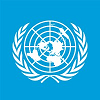National Consultant for a Study On Resilience of - Geneve, Schweiz - United Nations
Beschreibung
Result of ServiceThe consultant will deliver:
- Desk review of existing literature on the challenges, opportunities, and action on women-led MSMEs in Asia and the Pacific, with a focus on the Philippines.
- A survey, to be developed and conducted through a consultation process with women either leading or participating in women-led MSMEs.
- A short report on the findings of a desk review and the survey that outlines entry points for action, the challenges and opportunities, and makes recommendations on how best to support women either leading or participating in women-led MSMEs.
- Collected feedback based on the piloting of women-led MSMEs on the Multi-hazard business QRE and COVID-19 business QRE tools in order to improve the tools.
- A short training toolkit for women who own MSMEs that captures the key findings of the study, sharing the recommendations and any guidance on their implementation.
Home-based
Expected duration
3 months
Responsibilities:
A. Background
Created in December 1999, the United Nations Office for Disaster Risk Reduction (UNDRR) is the designated focal point in the United Nations system for the coordination of efforts to reduce disasters and to ensure synergies among the disaster reduction activities of the United Nations and regional organizations and activities in both developed and less developed countries.
Led by the United Nations Special Representative of the Secretary-General for Disaster Risk Reduction (SRSG), UNDRR has over 120 staff located in its headquarters in Geneva, Switzerland, and in regional offices.
Specifically, UNDRR guides, monitors, analyses and reports on progress in the implementation of the Sendai Framework for Disaster Risk Reduction The Sendai Framework), supports regional and national implementation of the Framework and catalyzes action and increases global awareness to reduce disaster risk working with UN Member States and a broad range of partners and stakeholders, including civil society, the private sector, parliamentarians and the science and technology community.The Sendai Framework outlines the inclusive, all-of-society approach that must be taken to reduce disaster risk.
It acknowledges both the specific vulnerabilities that women face in disasters, due to pervasive gender inequality that exists across all societies, while recognising the indispensable role of women in risk reduction efforts.
The Sendai Framework emphasises that a gender equitable and universally accessible approach is key, and it calls for the mobilisation of women's leadership in building resilience.
As highlighted in Sendai Framework paragraph (36c), the Private and Financial Sector, as well as its regulators, are indispensable for a resilient future.
The private sector, which accounts for over 80% of investment in any given country, is well placed to foster risk-informed development by implementing more responsible and sustainable business conduct and promoting long-term preventive and resilience focused approaches to investment.
Key to building resilience in women, is their economic participation. Women-led Micro, Small, and Medium-Sized Enterprises (MSMEs) create jobs for women. Women-led MSMEs have been shown to employ more women, providing greater opportunity for women's economic participation.This not only improves their socio-economic conditions but drives greater social inclusion through inclusive Gross Domestic Product (GDP) growth, which in turn leads to positive ripple effects throughout communities, such as better health and education for children, which is attributed to the increased control women have over resources.
There are a range of barriers that can prevent women from fully participating in the economy, for example social or cultural norms, family responsibilities, or a lack of access to financial services and knowledge.
Such barriers limit woman's economic potential and has resulted in fewer women-led MSMEs - in the Philippines, it is estimated that 24% of SMEs are led by women (approximately 28,000).
The private sector has a large role to play, with a critical need for substantial investment in women-led MSMEs to support transitions from micro to small, and small to medium and large enterprises.
This study is being undertaken as part of UNDRR's flagship women's leadership programme, the Women's International Network for Disaster Risk Reduction (WIN DRR), which is supported by the Government of Australia.
WIN DRR aims to empower women and enhance their role in decision-making in disaster risk reduction in the Asia-Pacific region by promoting and supporting women's leadership across sectors.
In line with the priorities of the Sendai Framework for Disaster Risk Reduction , which calls for understanding risk as a prerequisite to risk management, UNDRR's Regional Office for Asia and the Pacific has also developed a Quick Risk Estimation Took (QRE Tool).
Mehr Jobs von United Nations
-
Project Assistant
Geneve, Schweiz - vor 2 Tagen
-
Human Rights
Geneve, Schweiz - vor 5 Tagen
-
Consultant for Unrsf Project On Motorcycle Abs for
Geneve, Schweiz - vor 3 Tagen
-
Director, Division of Conference Management
Geneve, Schweiz - vor 1 Tag
-
Unep Finance Initiative
Geneve, Schweiz - vor 1 Woche
-
Intern - Information and Evidence Management
Geneve, Schweiz - vor 1 Woche

